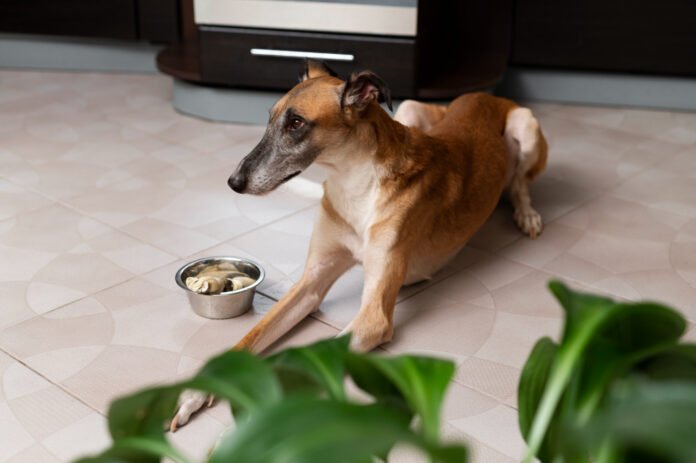Why is my dog not eating his food but will eat treats? As dog owners, we want our furry friends to be happy, healthy, and well-fed. But what happens when your dog suddenly refuses to eat his regular food but eagerly gobbles down treats? This situation can be perplexing and concerning for any pet parent. If you’re facing this issue, you’re not alone. Many dog owners experience this, and there are several reasons behind this behavior. In this article, we’ll explore the possible causes, how to address them, and when to seek professional help.
Understanding Your Dog’s Eating Habits
Before diving into the reasons why your dog may be refusing his regular food, it’s essential to understand your dog’s eating habits. Dogs, like humans, can have their preferences, quirks, and even bad habits. While some dogs are enthusiastic eaters who never miss a meal, others can be more selective.
A dog’s eating behavior can be influenced by several factors, including age, breed, and previous experiences. Puppies, for example, may eat less during teething, while older dogs might have reduced appetites due to a slower metabolism. Additionally, some breeds are known for being picky eaters, while others will eat anything placed in front of them.
Common Reasons Why Dogs Refuse to Eat Their Food
Behavioral Issues
Why is my dog not eating his food but will eat treats: Why is my dog not eating his food but will eat treats: One of the most common reasons dogs refuse to eat their food is due to behavioral issues. This could be a learned behavior where the dog realizes that if they refuse their kibble, they might get something tastier—like a treat.
Dogs are smart and can quickly associate their behavior with outcomes. If they know that not eating their food will lead to getting more appealing treats or table scraps, they may hold out until they get what they want. This behavior is often reinforced unintentionally by well-meaning pet owners who worry when their dog skips a meal.
Health Problems
Health problems can also cause a dog to lose interest in his regular food. Conditions such as gastrointestinal issues, kidney or liver disease, and infections can all lead to a decreased appetite. If your dog is not eating his food but still eating treats, it could be because the treats are more appealing or easier to digest than his regular food.
Another health-related issue could be nausea. Dogs that feel nauseous may not want to eat their regular food but might still eat treats because they are smaller and more enticing.
Dental Issues
Dental problems are another common reason why dogs may refuse to eat their food. Issues such as gum disease, broken teeth, or oral infections can make chewing kibble painful, causing your dog to avoid it altogether. Treats, which are often softer or smaller, may be easier for them to eat, leading to a preference for these over regular food.
Food Preferences and Picky Eating
Some dogs develop strong preferences for certain types of food, becoming picky eaters. They may simply prefer the taste or texture of treats over their regular kibble. If your dog has been given a variety of treats, he may become accustomed to their flavors and textures, making his regular food seem less appealing.
Changes in Routine or Environment
Dogs are creatures of habit, and changes in their routine or environment can affect their eating habits. Moving to a new home, changes in household members, or even alterations in feeding times can cause a dog to refuse his food. Stress and anxiety related to these changes can reduce a dog’s appetite for regular meals, even though they might still eat treats.
Spoiled or Expired Food
Just like humans, dogs can detect when their food has gone bad. Spoiled or expired food may have an off smell or taste, causing your dog to refuse it. Always check the expiration date on your dog’s food and store it properly to ensure it stays fresh. Treats, which are often sealed and preserved differently, may remain more appealing to your dog if his regular food has spoiled.
Overfeeding Treats
Overfeeding treats can be a major reason why your dog is not eating his regular food. Treats are often high in calories and can fill up your dog quickly, leaving no room for a balanced meal. If you’re giving your dog too many treats, he may be too full to eat his regular food, or he may simply prefer the taste of treats and hold out for them.
How to Encourage Your Dog to Eat His Regular Food
Why is my dog not eating his food but will eat treats: If your dog is refusing his regular food but will eat treats, it’s important to address the issue to ensure he’s getting the nutrition he needs. Here are some strategies to help encourage your dog to eat his regular food:
Establish a Routine
Dogs thrive on routine, so establish a consistent feeding schedule. Feed your dog at the same times each day, and avoid leaving food out all day. This helps your dog understand that meal times are specific, and if they don’t eat, they’ll have to wait until the next meal.
Create a Calm Feeding Environment
Make sure your dog’s feeding area is quiet and free from distractions. A noisy or chaotic environment can make your dog anxious and less likely to eat. Create a calm atmosphere during meal times, and give your dog space to eat in peace.
Limit Treats
Cut back on the number of treats you give your dog throughout the day. Treats should be given sparingly and not used as a replacement for meals. You can also try using a portion of your dog’s regular food as treats, so he gets used to eating it in different contexts.
Mix in Wet Food or Broth
If your dog is refusing dry kibble, try mixing in some wet food or low-sodium broth to make it more appealing. The added moisture can make the food more enticing and easier to eat. Gradually reduce the amount of wet food or broth over time to encourage your dog to eat the kibble on its own.
Gradual Transition to New Food
If you suspect your dog doesn’t like his current food, consider gradually transitioning to a new brand or flavor. Start by mixing a small amount of the new food with the old food, gradually increasing the ratio until your dog is eating the new food entirely. This slow transition helps avoid digestive issues and gives your dog time to adjust to the new taste and texture.
Use Interactive Feeders
Interactive feeders or puzzle toys can make mealtime more engaging for your dog. These feeders require your dog to work for their food, which can make eating more fun and stimulating. This method also slows down eating, which can be beneficial for dogs that tend to gulp their food.
When to See a Veterinarian
Why is my dog not eating his food but will eat treats: While many cases of a dog refusing his regular food can be resolved with the tips above, there are times when you should seek professional help. If your dog’s refusal to eat persists for more than a day or two, or if you notice other symptoms like vomiting, diarrhea, lethargy, or weight loss, it’s important to consult your veterinarian. These could be signs of an underlying health issue that needs to be addressed.
Conclusion
Why is my dog not eating his food but will eat treats? It can be frustrating and worrying when your dog refuses to eat his regular food but happily eats treats. However, understanding the possible reasons behind this behavior and taking steps to address it can help ensure your dog gets the nutrition he needs. Whether it’s a behavioral issue, a health concern, or just a preference for tastier treats, being proactive and patient will go a long way in keeping your furry friend healthy and happy.
Frequently Asked Questions
Q:1 How long should I wait before consulting a vet if my dog won’t eat?
A:1 If your dog refuses to eat his regular food for more than 24 hours, it’s a good idea to consult your vet, especially if there are other concerning symptoms. Prolonged refusal to eat can lead to nutritional deficiencies and may indicate an underlying health issue.
Q:2 Can anxiety cause my dog to stop eating his food?
A:2 Yes, anxiety can cause a dog to lose interest in his regular food. Changes in environment, routine, or the presence of new people or animals can all trigger anxiety in dogs, leading to a decreased appetite.
Q:3 Is it okay to feed my dog only treats if he refuses his food?
A:3 Feeding your dog only treats is not recommended as they do not provide the balanced nutrition that regular dog food does. If your dog refuses his food, it’s important to address the underlying cause rather than relying on treats.
Q:4 How can I tell if my dog’s food is spoiled?
A:4 Signs of spoiled dog food include a bad odor, discoloration, mold, or an unusual texture. If you suspect the food is spoiled, it’s best to discard it and offer fresh food. Always check the expiration date and store dog food in a cool, dry place.
Q:5 What are some safe treat alternatives that won’t spoil my dog’s appetite?
A:5 Some safe treat alternatives include small portions of your dog’s regular food, low-calorie vegetables like carrots or green beans, or specially formulated training treats that are low in calories. These options can satisfy your dog without spoiling his appetite for regular meals.
See More


